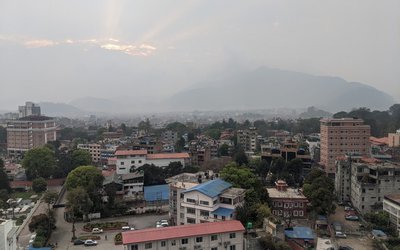The Food and Agriculture Organization of the United Nations (FAO) today announced that Her Royal Highness, Princess Maha Chakri Sirindhorn of Thailand, has graciously agreed to represent the Organization as an FAO Special Ambassador for Zero Hunger.
The announcement was made during a special presentation to the Princess at a ceremony to mark the 36th World Food Day at FAO’s Regional Office for Asia and the Pacific in the Thai capital, Bangkok.
Achieving a world of zero hunger by 2030 is one of the Sustainable Development Goals (SDG 2) developed and agreed by the international community. FAO has been identified as a UN “custodian” agency of SDG 2 (Zero Hunger).
“The acceptance of Her Royal Highness to represent the UN’s Food and Agriculture Organization as a Special Ambassador for Zero Hunger will greatly improve awareness of both policy makers and the public of what, collectively, we must do to achieve a world without hunger,” said Kundhavi Kadiresan, Assistant Director-General and FAO Regional Representative for Asia and the Pacific. “With political will and commitment we can be the zero hunger generation.”
Her Royal Highness, Princess Maha Chakri Sirindhorn, has long been a champion of projects to end hunger and improve nutrition in her own country Thailand and also in other countries of the Asia-Pacific region, including Bangladesh, Bhutan, Cambodia, Lao PDR and Timor Leste.
It was because of the many years devoted by Her Royal Highness in the fight against hunger and support for improvements to nutrition, that FAO’s Director General José Graziano da Silva proposed the role of FAO Special Ambassador for Zero Hunger.
Achieving zero hunger by 2030
FAO’s most recent estimates indicate there are nearly 800 million undernourished people in the world. The Asia-Pacific region is home to most – with 490 million not receiving enough calories to live healthy lives. While not getting enough to eat is a major issue, poor nutrition is another, with bad diets leading to micronutrient deficiency and stunting in children. Obesity is also a serious concern in many countries affecting both adults and children.
The Asia-Pacific region has made great strides over the past quarter century to reduce hunger. Nearly 24 percent of the population was hungry in 1990. By the end of 2015, that percentage had been reduced by half – to around 12 percent, although some parts of the region, particularly countries in South Asia had lagged behind.
FAO works with its member countries to help improve and protect food systems, ensure better nutrition and healthy consumption and adapt agricultural practices to a changing climate in order to feed a growing world population.
- TANAHU HYDROPOWER PROEJCT: A Significant Achievement
- Apr 15, 2024
- AMBASSADOR HANAN GODAR: Sharing Pain With A Nepali Family
- Mar 30, 2024
- VISIT OF KfW AND EIB TO NEPAL : Mission Matters
- Mar 25, 2024
- NEPAL BRITAIN SOCIETY: Pratima Pande's Leadership
- Mar 24, 2024
- NEPAL ARMY DAY: Time To Recall Glory
- Mar 15, 2024
















